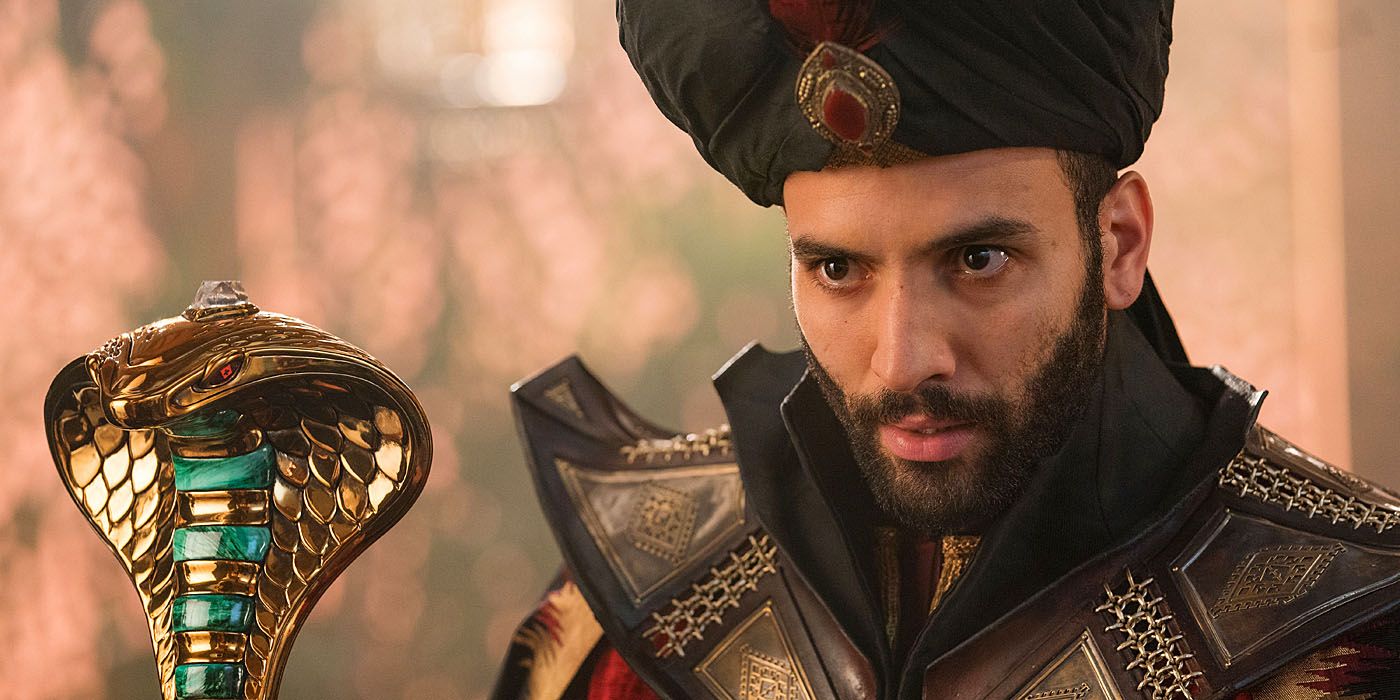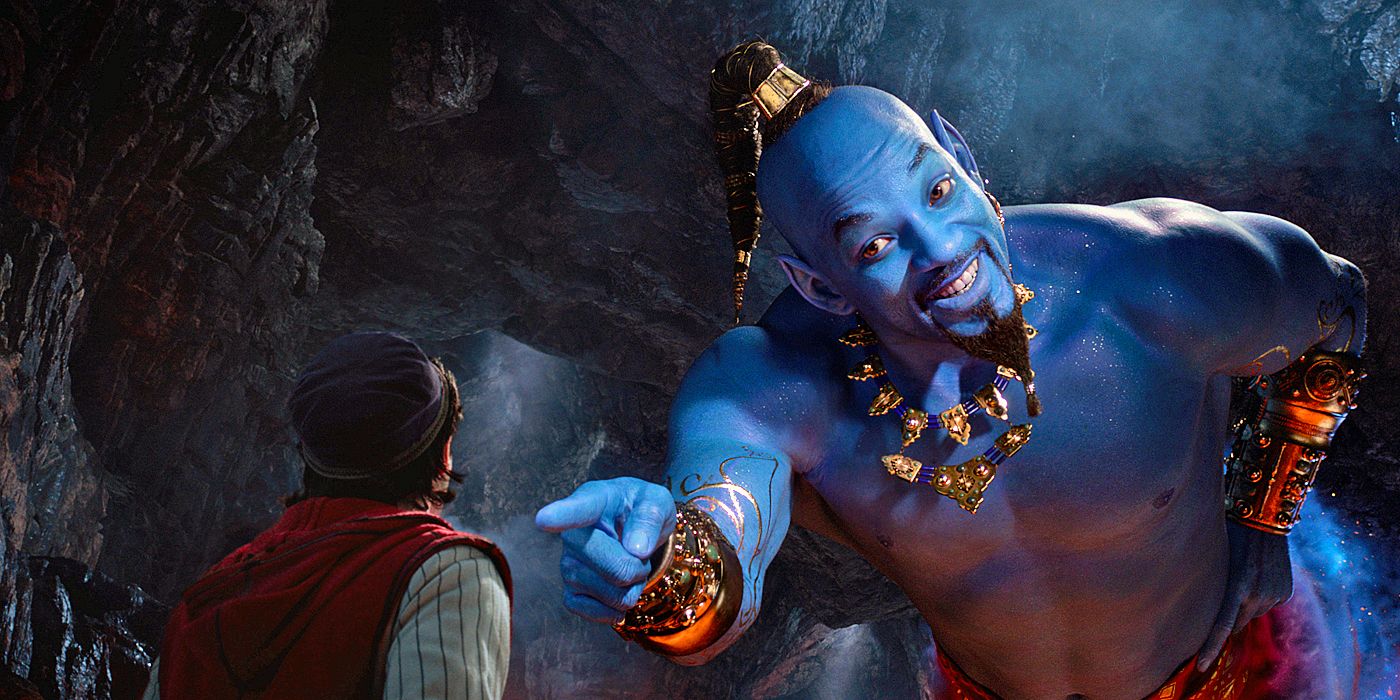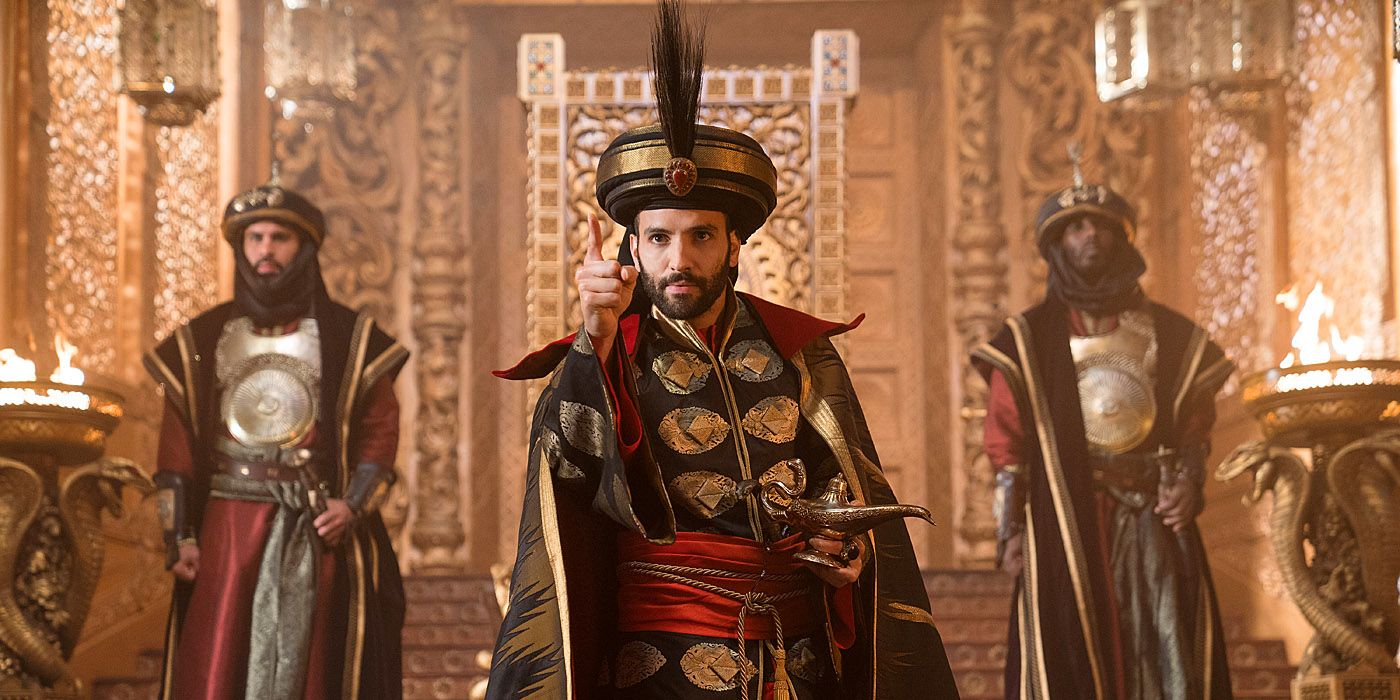WARNING: The following article contain spoilers for Disney's Aladdin, in theaters now.
Guy Ritchie's Aladdin revamps the 1992 classic for a modern audience, which is no easy task, as the original is one of Disney's most beloved properties. Thus, it's easy to understand why there'd be so much scrutiny placed on the film, especially in the wake of the success of The Jungle Book remake.
However, for the most part, Ritchie honors the lore of old while cleverly updating certain elements of the franchise. That said, while many thought Will Smith's Genie would have been an issue, it's actually Jafar (Marwan Kenzari) who turns out to be the biggest problem in the movie.
When the first trailer dropped, fans voiced concerns over Smith's CGI portrayal of the character, criticizing everything from his blue coloration to his human form to his style not fitting what Robin Williams did over two decades ago. Honestly, this microscope was inevitable, but rest assured, Disney nails everything about the Genie.
Let's be real, no one can displace Williams' take on the character, but Smith adds his own brand of humor to the role and makes it distinctly his, appealing to crowds who've loved his hilarious demeanor in films like Men in Black. And so, the grousing in the lead up to this movie, as well as some rocky marketing, comes to nothing in terms of the giant blue wish-granter. But in Jafar's case, for someone who's supposed to be so intimidating and a major pillar of the story, Kenzari's depiction comes off like an afterthought.
In the original, Jafar had a commanding presence, especially when it comes to Princess Jasmine, constantly monitoring her to ensure she doesn't help break his grip on the Sultan. Now, Ritchie does well to map the Vizier's brainwashing of the Sultan, as well as his rivalry with Aladdin, but most of the film hinges on Jasmine's aspirations as ruler outside of her rivalry with Jafar.
We don't get too many interactions between him and her, which is disappointing, as they're both going after the same thing here. Jasmine wants to rule to better society, while Jafar wants to turn the kingdom of Agrabah into a war-driven empire. Jasmine's arc, especially when you throw Aladdin into the mix, takes up most of the time.
It's expected, but still, Jafar should have contributed more as Ritchie tries to take a leadership direction with him off the cuff. Instead, he loses the lamp at the start and shows back up midway, and then in intervals, trying to piece together Aladdin and the Genie's deception. When he eventually recovers the lamp for himself, wresting power away from the Sultan, it's hard to connect with why he wants to marry Jasmine and control her life, as they don't really have any established relationship bar a few verbal barbs here and there.
Apart from his misogynistic mantra about how "women should be seen, not heard," their dynamic comes to nothing. It's disappointing, as the movie drastically shifts to Jafar being a major focal point, yet it didn't flesh out him and Jasmine at almost every point prior. In their brief scenes, they do have great chemistry, which ultimately is a stark reminder Jafar should have gotten more screen time.
Because of this, Aladdin lacks a sinister air from him or Iago, and rather than being this emperor-esque villain like a Palpatine or Doctor Doom, Jafar comes off more like a royal thug than a usurper and tyrant trying to take the throne. Ritchie disappointingly ends up trying to force-feed him to viewers as some nuanced villain, when all we see in the first two acts is a shallow and petty thief who behaves like a spoiled brat.
Directed by Guy Ritchie, Aladdin stars Mena Massoud as Aladdin, Will Smith as Genie, Naomi Scott as Princess Jasmine, Marwan Kenzari as Jafar, Navid Negahban as the Sultan of Agrabah, Billy Magnussen as new character Prince Anders, and Frank Welker and Alan Tudyk as the voices of Abu and Iago, respectively.



